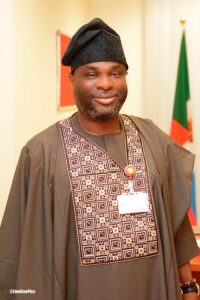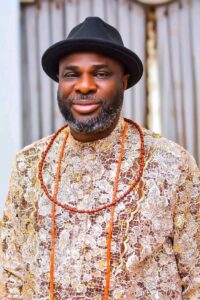ABUSOMWAN GIVES REASON FOR BOOK ON EDO LANGUAGE
By EBEN ENASCO KINGSLEY BENIN
The challenges confronting the understanding and speaking of the Edo Language will now be a thing of the past, all thanks to Mr. Abusomwan Osamuyime Clement who painstakingly put together and launched a book titled “Urue-edo khien no wue re” which by its English interpretation means Edo Language made easy.
The author, whose unquenchable passion, began from his childhood days, said that he feared that the language might go into extinction as most parents have jettison the idea of speaking it to their children and wards at home compared him to come up with the idea of writing the book.
“I discovered that there is a need existing somewhere especially within the binis and over time, I also discovered that the problem is lingering on. It is even extending to other tribes. Our children can no longer speak our own mother tongue. It is now a very big problem. So, I decided to come down to terms to see how much I can proffer a solution to that existing need for now,” he said.
The author revealed that the book, which is written in Edo language and interpreted in English language, could be read and enjoyed by all irrespective of age and class.
Abusomwan who derives pleasure in writing, further promised to take up the task of making publications for those in the early stages of their university careers having meant the desired needs of those in the lower classes especially the primary, the junior secondary and the senior secondary school.
However, in case you see an Igbo man speaking Edo language fluently when he may have not visited the Edo speaking part of the state, there is no doubt that he may have read the book written by Mr. Abusomwan.
Abusomwan therefore, called on parents to always speak their local languages as research has proven that children who are brought up in their local languages do better in their studies than those who are not.
Sources further revealed that the book is now a hot cake and a must read book in Benin City, the Edo State Capital and people from other states who believed that there is a need for them to equip themselves with more languages other than their own native dialects.



